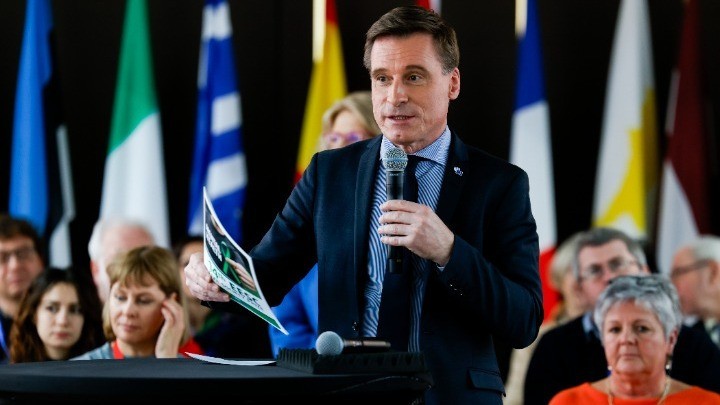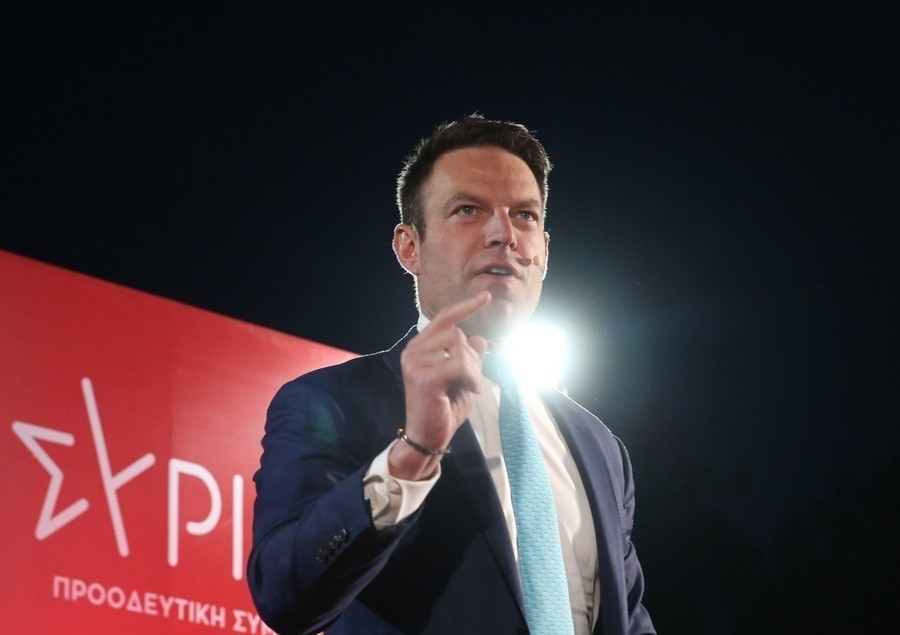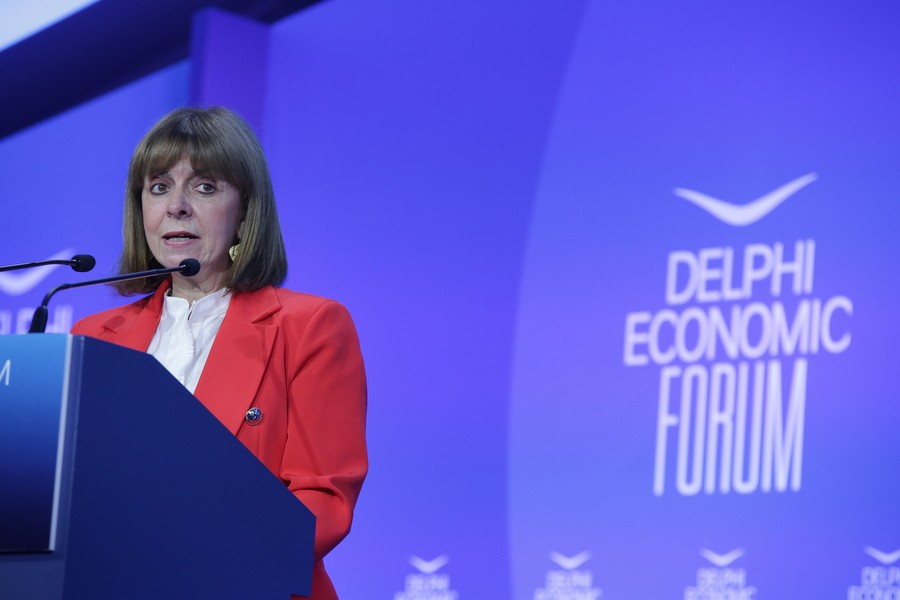
Röpke: Europe can go a long way, if we stick together

File Photo The president of the European Economic and Social Committee (EESC), Oliver Röpke
The only way for “Europe” to succeed in the European Parliament elections in June is if we work together – providing factual, evidence-based information to combat disinformation, the president of the European Economic and Social Committee (EESC), Oliver Röpke, said in an interview with the Athens-Macedonian News Agency (ANA-MPA).
“The gravest setback for Europe would be a significant victory for anti-EU forces. While we may have different views on the future of Europe, as long as we agree that unity is essential, Europe will remain resilient,” he stressed, adding that “Europe can go a long way, if we stick together.”
The EESC president stated that he is a strong supporter of a progressive integration of EU enlargement, believing that engaging with candidate countries is crucial to avoiding past mistakes. “Gradual integration begins with fostering strong roots, and organized civil society,” he noted, stressing the importance of a robust civil society and effective social dialogue for well-functioning democracies.
The full interview of Oliver Röpke with Lila Chotzoglou follows:
You have recently signed a Memorandum of Understanding with European Parliament president Roberta Metsola on cooperation ahead of the European elections. What are you planning to do to boost voter turnout and counter information manipulation?
The EESC has a vast network of 329 members from across the EU, representing businesses, workers farmers, consumers and environmental organisations. They are ideally positioned to reach out and to engage with various electoral groups, including potential non-voters, in discussions about Europe, people’s concerns and expectations from EU leaders.
The only way for “Europe” to succeed in the European Parliament elections in June is if we work together – providing factual, evidence-based information to combat disinformation. Accessible information is crucial in countering the threats of disinformation and fake news to our democracies, as highlighted during the Civil Society Week. The EESC is currently in the process of drafting a comprehensive opinion on the topic of disinformation. Additionally, last year we launched a campaign “Civil society can defeat disinformation” with a kick-off event in Bulgaria. This year, we will extend our efforts beyond EU borders with a conference in Moldova. Disinformation and foreign interference do not respect borders, and neither should we – it is imperative that we work together both within the EU and with our candidate countries to address these challenges.
The European elections will be a litmus test of European democracy. Would a low turnout constitute a blow to democracy?
The gravest setback for Europe would be a significant victory for anti-EU forces. While we may have different views on the future of Europe, as long as we agree that unity is essential, Europe will remain resilient. Diversity of opinions, views, and ambitions is intrinsic to the European Union, yet we consistently find common ground and consensus. It is when you have no partners to talk to on the other side of the table, that’s a genuine cause for concern. As the saying goes: “if you want to go fast, go alone; if you want to go far, go together”. I am a firm believer in this approach. Europe can go a long way, if we stick together.
As you have said EESC brings the voices of organized Civil Society – employers, workers, NGOs – to Europe, as every voice counts. By what means can EESC help these people?
Upon my election as President of the EESC in April last year, I pledged to transform the EESC into a genuine gateway for civil society. I want the EESC to be the convening space where people from all walks of life feel free and safe to speak up. This inclusivity defines the EESC’s greatest value – serving as a platform through which civil society organizations can convey their messages to EU leaders. The recent Civil Society Week was the best example of that inclusivity with over 800 participants from across Europe engaging in vibrant discussions, panels, and workshops to shape messages for the next generation of EU leaders. That message is clear – a call for more democracy and youth, less fake news and an economy that works for all. I am committed to ensuring that this message reaches the attention of future EU leaders.
The European Economic and Social Committee (EESC) is the first EU institution that opened its doors to candidate countries. Indeed, enlargement is a critical choice for the future of the European Union, but do you consider that this may pose a threat to the EU acquis?
I am a strong supporter of a progressive integration, believing that engaging with candidate countries now is crucial to avoiding past mistakes. This philosophy underpins the Enlargement Candidate Members initiative, making the EESC the first EU institution to embrace civil society representatives from candidate countries. Gradual integration begins with fostering strong roots, and organized civil society – including employers, trade unions, and civil society organizations – forms the bedrock of our efforts. A robust civil society and effective social dialogue are indispensable for well-functioning democracies. By gradually integrating civil society from candidate countries into the EU, we empower them to strengthen their capabilities in preparation for accession.
What are the key components of EESC policy to deal with pressing human rights challenges?
I want the EESC to become the democratic watchdog, especially when it comes to fundamental rights and human rights. As the gateway for civil society, we are well plugged into developments in Member States and EU candidate countries. Through our dedicated Fundamental Rights and Rule of Law Group, we carry out comprehensive assessments, including visits to all EU Member States, to gauge the state of civil society. We are now starting a second round of visits, expanding our scope to EU candidate countries. As mentioned previously, it is imperative that we work with the prospective EU member states already now to ensure their alignment with EU standards.
Additionally, we are steadfast in our commitment to gender equality. As we just marked the International Women’s Day on 8 March, it is important to acknowledge the progress made by the EU towards gender equality. Unfortunately, we still have a long way towards full equality – in Europe and beyond. Next week, I will lead a Delegation of EESC Members, marking the first participation of the EESC in the United Nations Convention on the Status of Women. This year we will focus on poverty, which is not gender neutral and hampers progress towards women empowerment and gender equality. Our participation at this important Convention underscores our dedication to global gender equality and amplifying the voice of civil society on the international stage.
Source: ANA – MPA
PM Mitsotakis visiting Cairo with European Commission president

